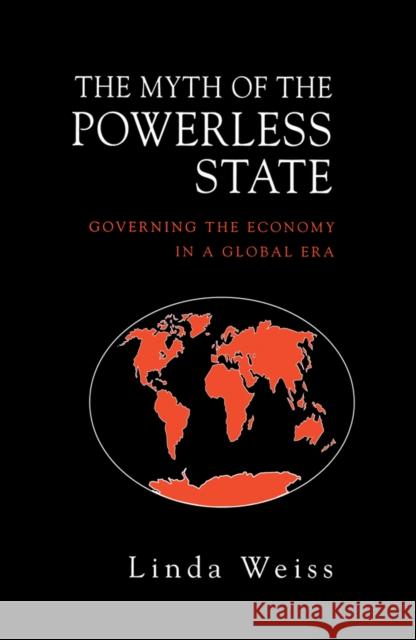The Myth of the Powerless State : Governing the Economy in a Global Era » książka
The Myth of the Powerless State : Governing the Economy in a Global Era
ISBN-13: 9780745615820 / Angielski / Miękka / 1998 / 280 str.
It is widely claimed that as the integration of the world economy advances, national governments are becoming less relevant, losing their powers not only to influence macroeconomic outcomes and to implement social programmes, but to determine strategies for managing the industrial economy. In the face of such claims of state powerlessness, this book proposes that what lies behind some of the most successful economics today is a series of state-informed and state-embedded institutions for governing the economy.
The book's central proposition is that the impact of external economic pressures is to a large degree domestically determined, varying in important measure according to the robustness or weakness of national institutions. This thesis is advanced through an analysis of the sources and varieties of state capacity for governing industrial transformation. Focusing on the unravelling of Sweden's distributive model of adjustment, on the evolution of developmental states in East Asia, as well as on the parallel strengths of the German and Japanese systems of industrial co-ordination, it is shown how different types of state capacity - "developmental," "distributive" and "dual" - impact on industrial vitality and domestic adjustment to the international economy. The comparative perspective developed in this study indicates that, as world economic integration proceeds, state capabilities will matter more rather than less in fostering social well-being and wealth creation.
This book will be essential reading for 2nd- and 3rd-year undergraduates in comparative politics, political economy and political sociology as well as to all those who have an interest in the nature and prospects of the state in the face of changes to the world economy.











